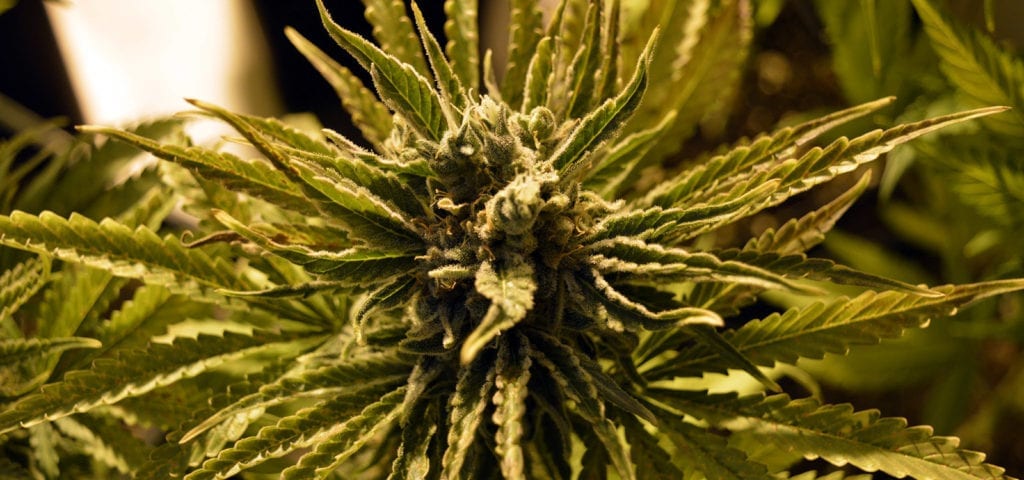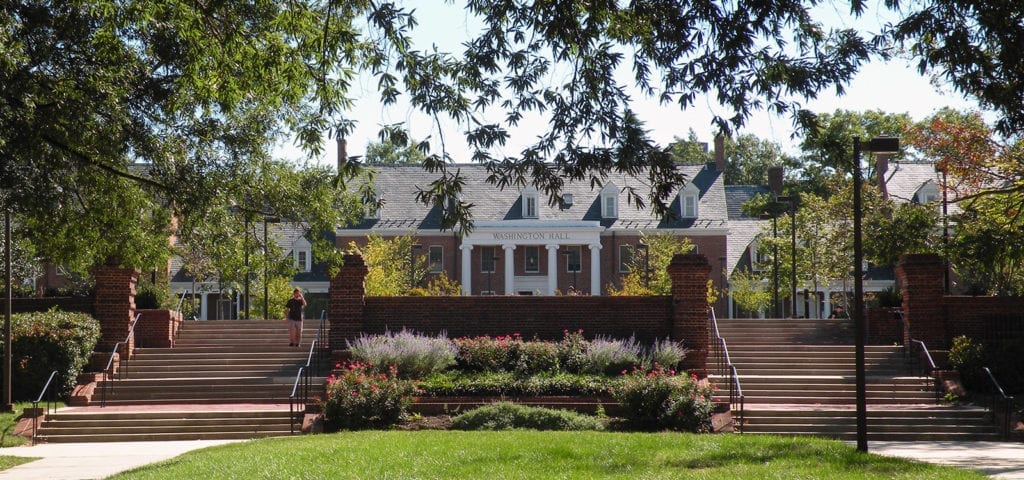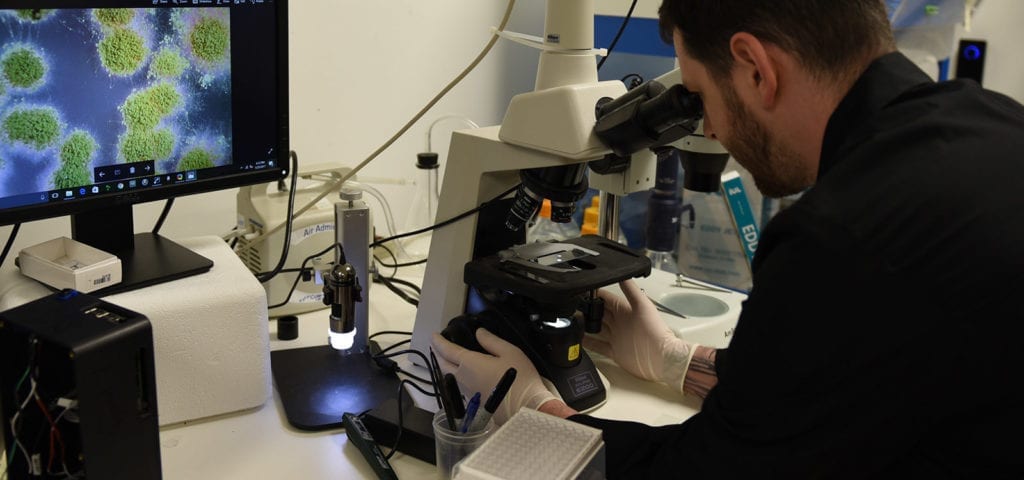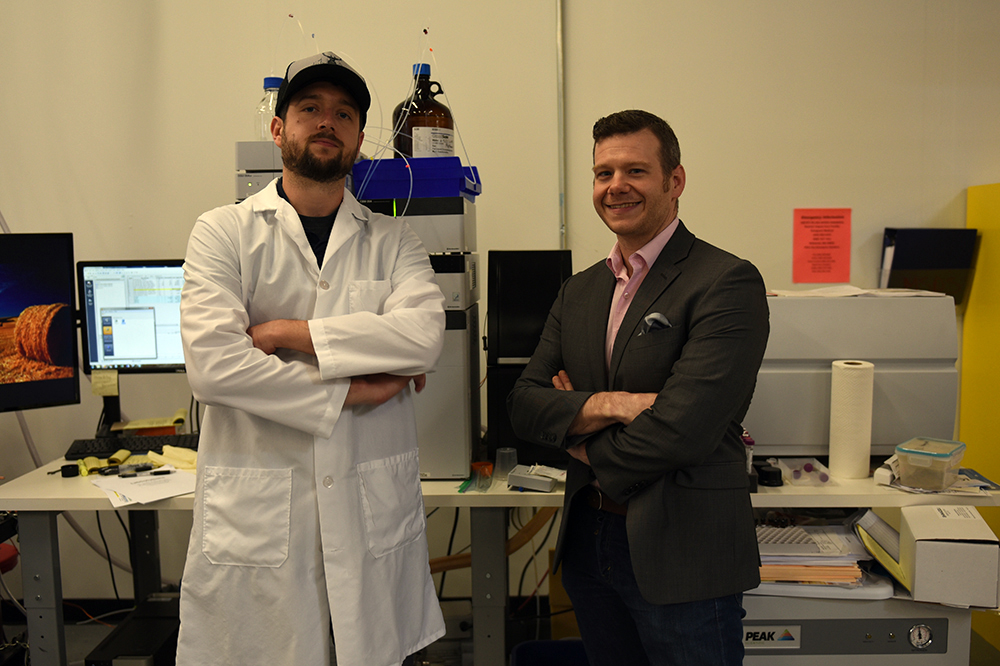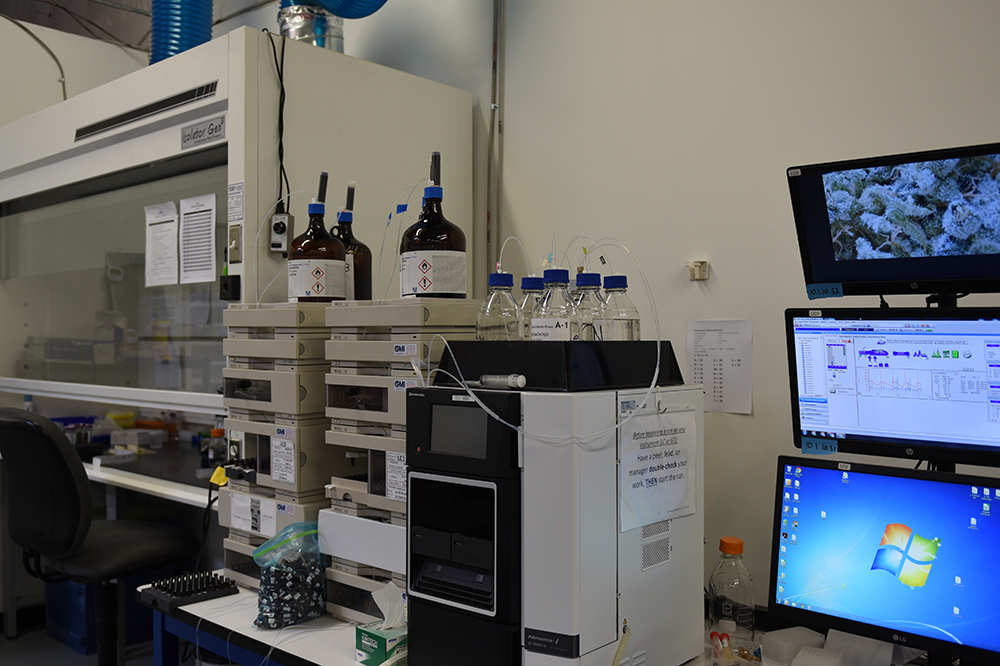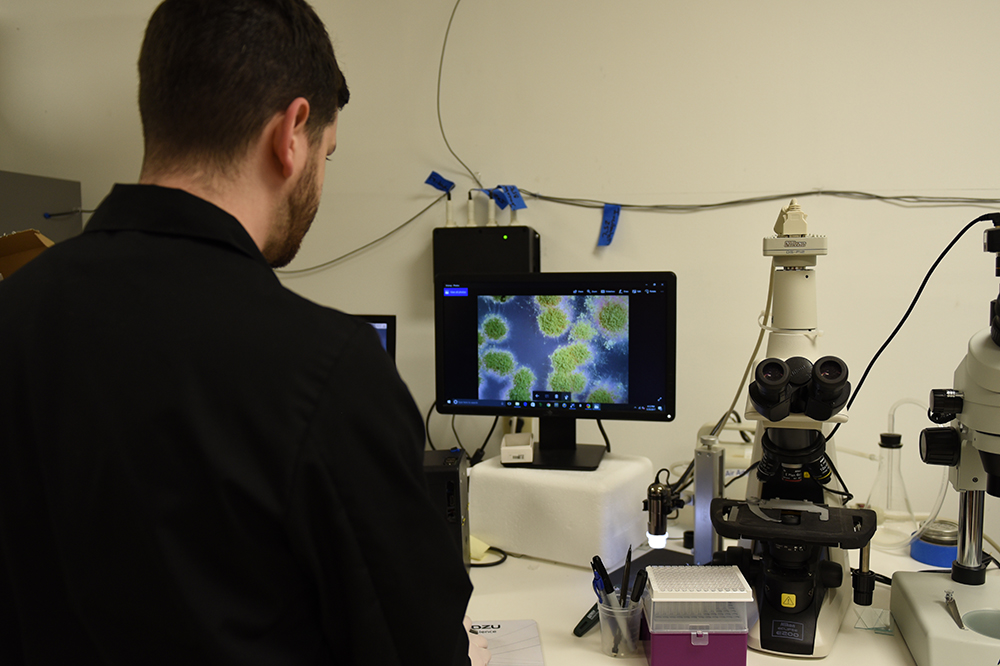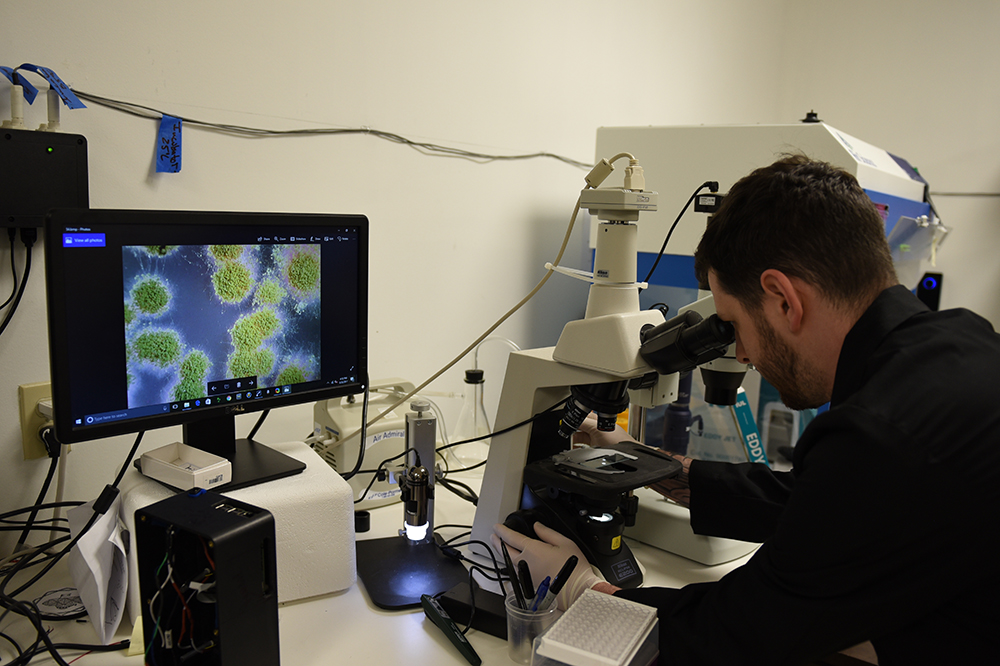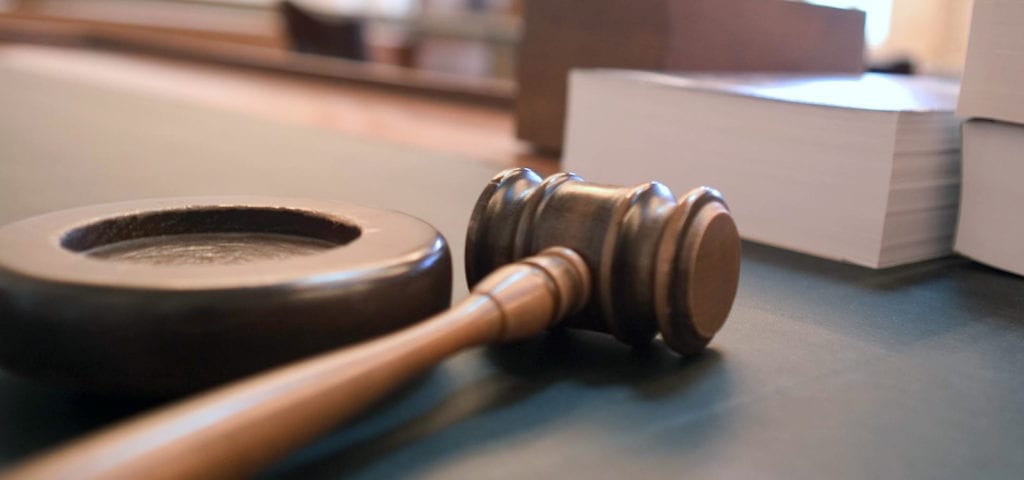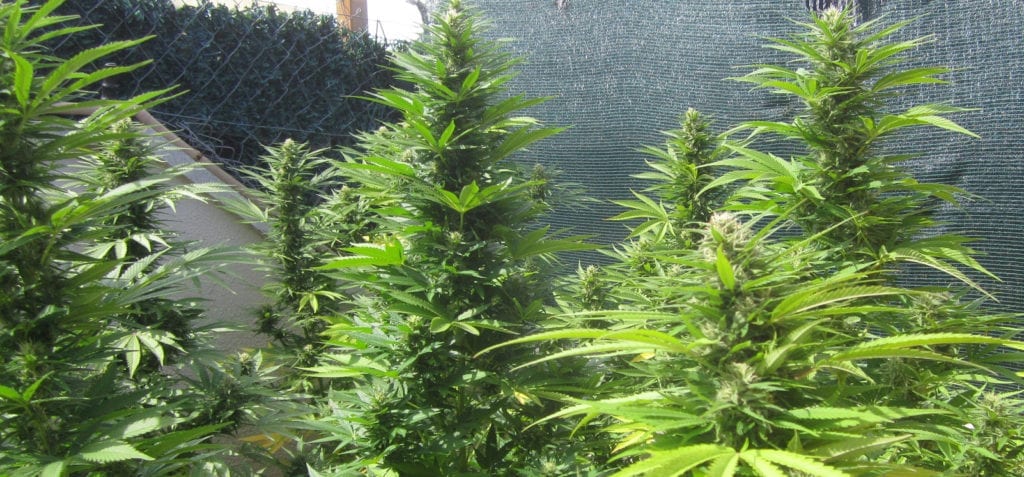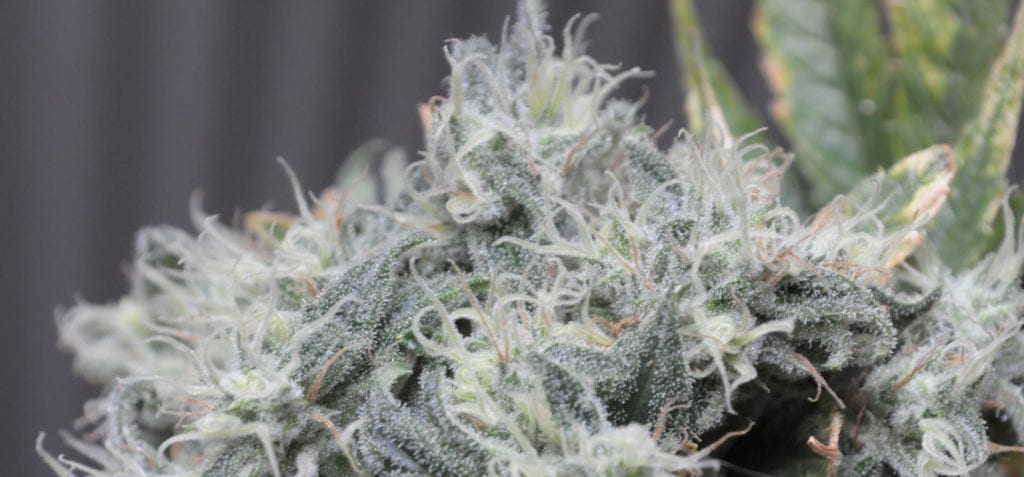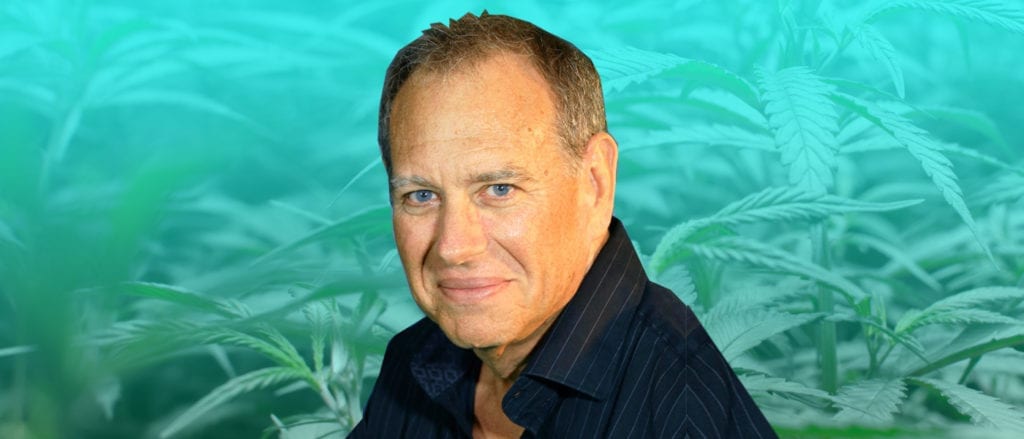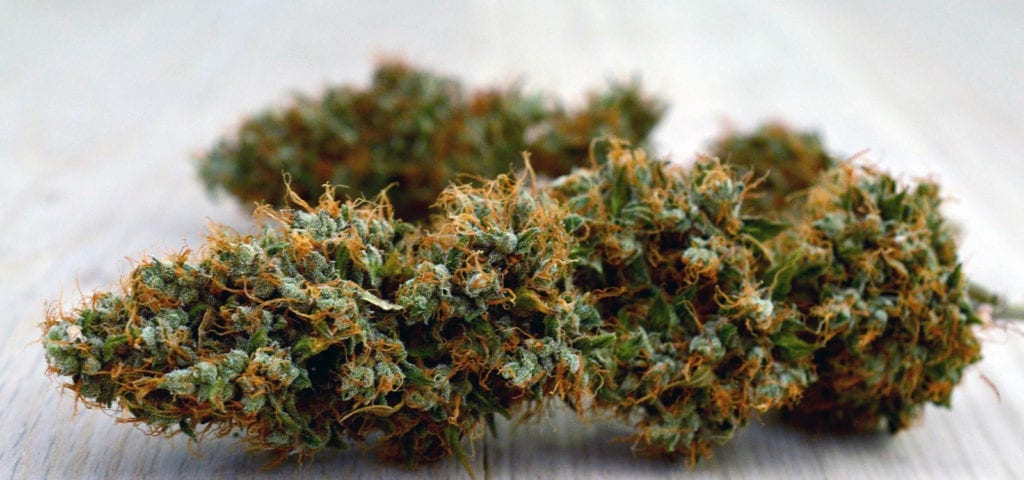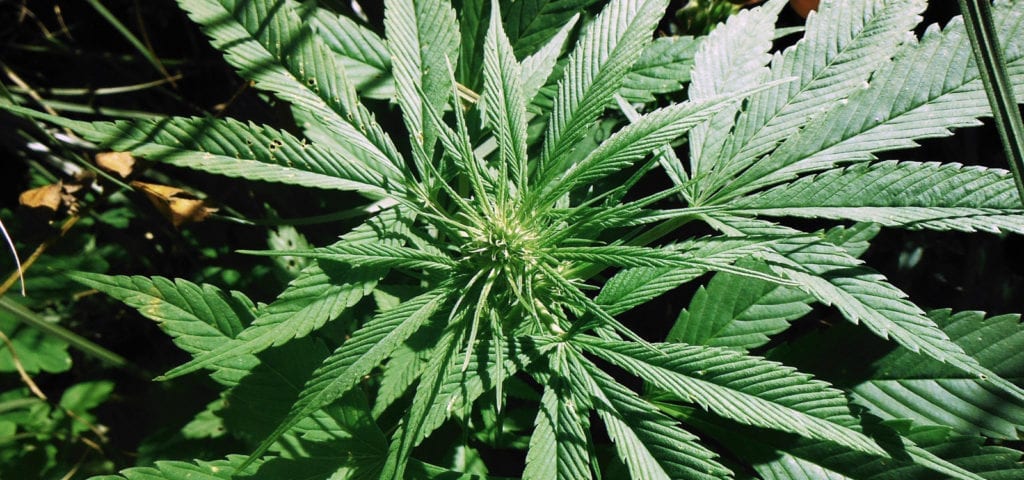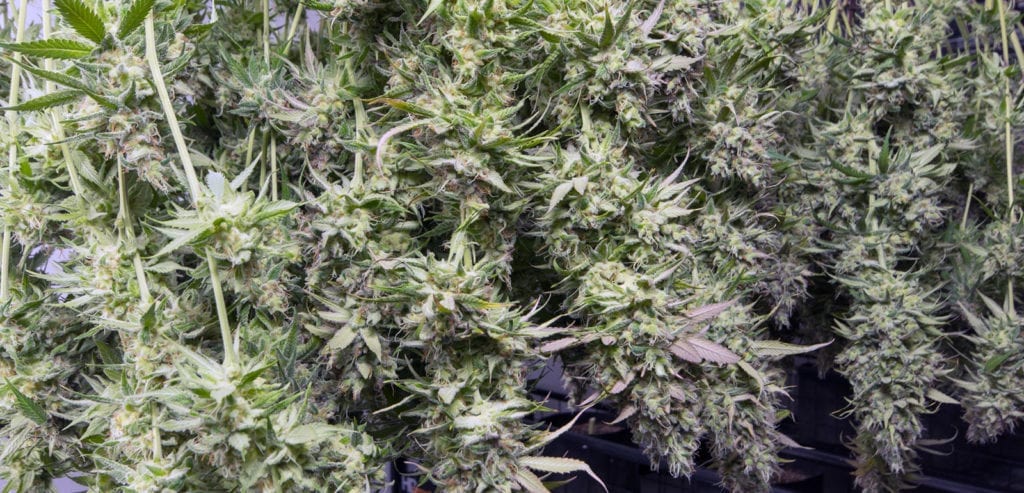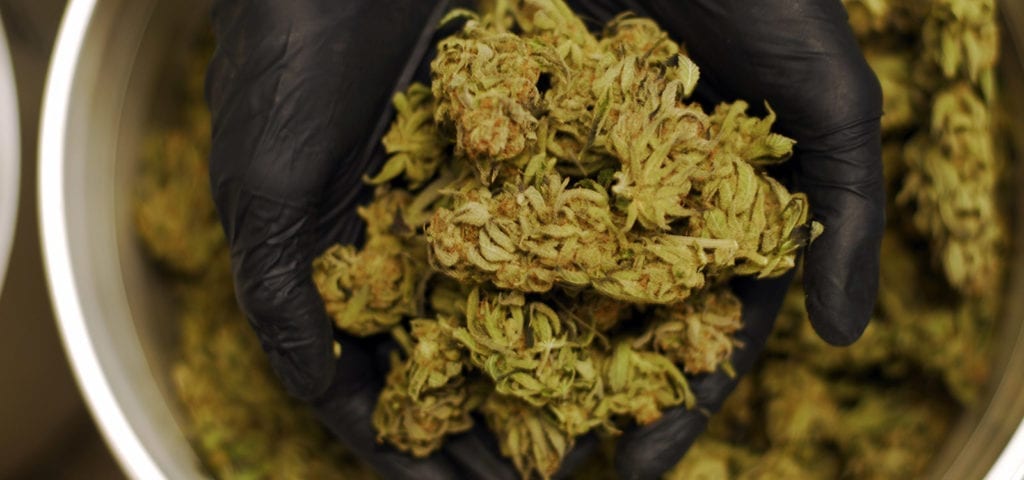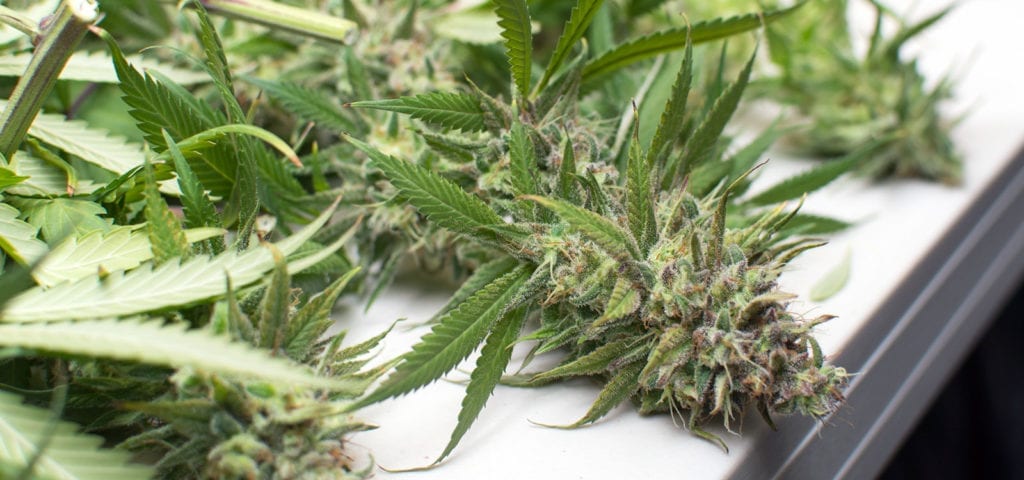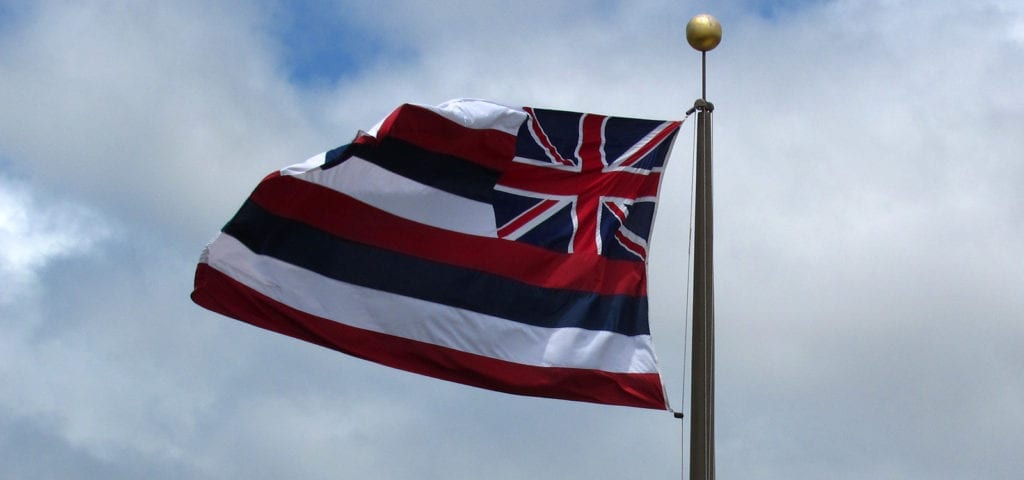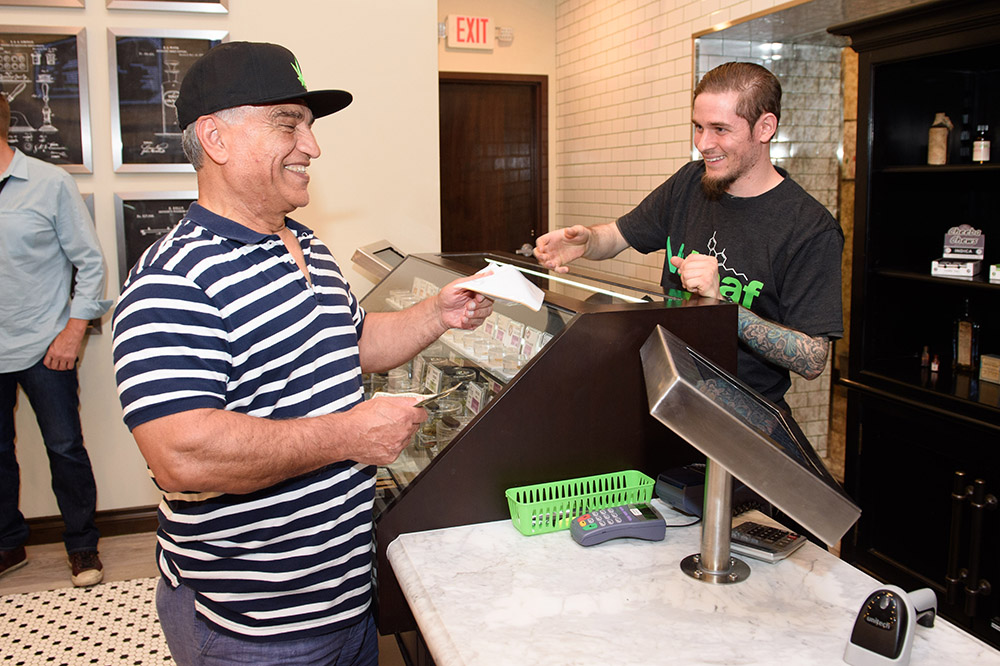Dr. Allen Miller is the founder/owner of Doctors Cannabis Consulting and, in addition to being a chiropractor and a consultant, is an enthusiastic patient and supporter of cannabis medicine.
In this episode of the Ganjapreneur.com podcast, Dr. Miller joins our podcast host TG Branfalt to discuss using cannabis therapy as an exit strategy for opioid addiction, how Dr. Miller’s own experience using medicinal cannabis shapes his conversations with patients, how the MMJ industry is beginning to interact with insurance companies, and more!
Listen to this week’s Ganjapreneur.com podcast episode via the media player below or continue scrolling down to read a full transcript of the interview.
Listen to the podcast:
Read the transcript:
TG Branfalt: Hey there. I’m your host TG Branfalt and you are listening to the Ganjapreneur.com podcast where we try to bring you actionable information to normalize cannabis through the stories of Ganjapreneurs, activists and industry stakeholders. Today I’m joined by Doctor Allen Miller. He’s the owner of Doctors Cannabis Consulting. Welcome to the show Dr. Miller. It’s a pleasure to have you today.
Dr. Allen Miller: Hey, Tim. Thank you very much. I really appreciate you inviting me. I’m just really honored and I’m pleased to be able to get the latest news out that I think that’ll make people happy.
TG Branfalt: I’m real excited to hear it. Before we get into kind of the latest news, that sort of thing, why don’t you tell me about your background, your medical background and how you get started in the cannabis space.
Dr. Allen Miller: I got into cannabis really very late. My father was a Los Angeles police officer and I remember going to the jails at the age of seven years old watching people go through withdrawals and my father would say, “This is what drugs do.” I’m of that baby boomer generation. It scared the living hell out of me so I didn’t even touch cannabis, thinking that all the things that would go wrong would and, subsequently, until very late in life. I played football and sports. I was a bodyguard for some stars. I did my own stunts which means I was hurt constantly. I rode horses, broke my back, feet, you name it, I broke it. I lived in chronic pain and I was taking opioids because I’m in the medical profession. I work with US track and field so those things were not foreign to us. We just used them and I used them to, much like any other athlete, to be productive.
Now that things are changing and they’re harder to get, it was necessary for me to come off the drugs and I wasn’t about to go to rehab. Wasn’t going to happen and one of my associates actually worked in a dispensary, was quite knowledgeable about it and she actually helped me. Goes, “Why don’t you just go and do marijuana? Why don’t you just do that?” She took me down, helped me get my first recommendation card and that’s what started me on the journey through medical marijuana, CBDs and all these other products, which later turned out, as what we’ll discuss, into what I’m currently doing. It was completely by accident.
TG Branfalt: That’s really the first thing that I want to talk to you is the use of cannabis as an exit drug. I’ve said this on the show a few times, how I use cannabis and I just want to kind of give you the breakdown. I haven’t used alcohol in three years and I credit much of that success to cannabis. I use cannabis throughout the day in small amounts to mitigate my own pain. I microdose with edibles to ease anxiety but at night and the weekends, I certainly consume more and more potent cannabis. I basically replaced getting blackout drunk with upping my cannabis intake and when I really want to drink, I smoke and the urge passes. Admittedly I was never hooked on opioids but for me, it has helped me get off of alcohol. I know that alcohol and opioids, they’re not the same thing, but can you tell me more about the studies that have been done and your experience with patients helping them use cannabis as an exit drug?
Dr. Allen Miller: Yeah. You and I use it very similar. I shattered both feet and I got a tremendous amount of pain and regardless of the severity of the injury, pain is pain. I like to say that it decreases your focus and your productivity because you’re concentrating on pain. You aren’t able to do what we do. Opioids were great for that but they also sped you up, too. If it weren’t for opioids I don’t think I could’ve spent nine years trudging with the Olympic teams in Africa. Be that as it’s said, the hardest thing about being in pain or severe pain, and this is for anybody, is you feel like you’re walking through mud … but your brain keeps going faster so you need something that’s going to take away the pain so your body can keep up with your brain and not be exhausted all the time. That’s the feeling I had with opioids.
Cannabis, I had to really work hard to find the correct measure of THC to CBDs to get the almost the same effect and I went through a plethora of products that I was able to bring to my patients. The nice thing about it is I’m able to speak at first experience and say, “Yeah, been there, done that. This is what works for me,” and then make the adjustments and go from there but very similar to what you’re doing. I do the same thing.
TG Branfalt: There’s not a lot of research out there. Why do you think that cannabis works as an exit drug?
Dr. Allen Miller: The one thing I think that everybody needs to understand is the one thing that the brain wants to be is happy. That’s its job in life is to make you happy. It fights off pain. It fights off. It cleans you. It does all those things but at the end of the day it looks for things to make you happy. Opioids make you happy. The brain can even manufacture more pain to increase your drug intake. That’s how powerful it is. What’s nice about cannabis is it fills up those receptor sites and makes you slowly transition. In my case, I didn’t know what to expect so I really did this DIY. I really kind of invented it up as I go. As you said, there was no research. There was really nobody around to coach me and teach me how to do this so I kind of made it up as I went, failed and then succeeded, so on, so forth.
I found that it made my brain happy and when my brain was happy and I felt good, I just would forget to take the opioids and then sooner or later I thought, “Okay, I’m now down,” and I wasn’t having any repercussions for it. I wasn’t having any bad effects, withdrawals, anything like that. Again, I’d love to tell you this was planned, buddy, but it was really by accident. I kind of fumbled my way through it. I kind of like to say I just bumbled and fumbled my way through this thing and found what worked and it’s worked on the other patients. If you’d like me to describe that I’d love to tell you about it.
TG Branfalt: Oh yeah, absolutely. I’d love to hear the process that you go through with patients.
Dr. Allen Miller: What we do is we have some similar problems here is I own functional medicine clinics. My expertise goes back to functional medicine which, for your audience, is probably the best way. If you’re searching for a doctor look for a functional medicine doctor because they will use natural products over prescriptions but they’re going to use prescriptions, too. They’re really up to date with bioidentical hormones, all the things that you’ve never heard of. That experience, nutrition is a big part of it so I changed my nutrition and one of the things I found hard about edibles was one of my doctors stated it’s just junk food with pot in it. We had to really find organic pieces and thank god that’s getting better. What I’ve found is, like I said, if I took enough where the CBDs where I could almost mimic the opioid feeling of no pain or acceptable pain, something that I could deal with, then I could do my daily work. It only took me about a month to get off the opioids which is pretty amazing.
TG Branfalt: Wow.
Dr. Allen Miller: What I did was this, and this is completely contrary to what you usually hear. You’ll know the minute I say it, I just bombarded my system with as much CBDs as I possibly could and THC to find out where the balance was. I just shotgunned it. I kept a journal, found out which dosages worked and then continued from there. As I said, I was not concentrating on the opioids. I wasn’t concentrating on the pain, I was more concentrating on how to get off of it and do this, that I would literally forget to take the opioids and that’s how I got off of it. I’ve had absolutely no compunction to go back and I lead a fairly active lifestyle and I’m 61. Not bad.
TG Branfalt: No, that’s really incredible, a month. That’s almost unheard of.
Dr. Allen Miller: It really wasn’t difficult and I got to tell you, I’ll be very transparent with you. I had been on these things off and on for 30 years.
TG Branfalt: Wow.
Dr. Allen Miller: My first broken back, I got stabbed with Jerry Garcia way back [inaudible 00:09:16] broke my back in a concert so yeah. I was body guarding Jerry Garcia so I’ve had my share of, I do my own stunts is probably the best way to say it. About a month, I was off. You know what’s most important about people, and I’d like to say this and speak to those people in pain. It’s not so much the pain as the fear of the pain and the fear of being stranded and unable to move. That is the biggest fear that I felt as a chronic pain patient. I used to carry pain pills in my pocket. I was scared to death that I’d get to a point where I’d be incapacitated. That scared me more than anything else.
TG Branfalt: As somebody who does experience pain and whose back has locked up on him and left him bedridden for days, that is a very real fear. When you can’t go anywhere because you’re afraid, “Oh, I’m not going to have my medicine,” and it really does impact your life incredibly.
Dr. Allen Miller: Oh, it shaped your life, Tim. If you think back, look at the things it stopped you from doing because of the fear of being incapacitated somewhere. “Oh, I’ll do that, my back will lock up.” It now becomes a lifestyle issue.
TG Branfalt: Have you mixed in, this is probably kind of a stupid question but have you also adapted a workout regimen to go along with the cannabis therapies?
Dr. Allen Miller: Oh god, no. No, only because I should and I recommend my patients to do that and work out this. I still work with horses. I lead a pretty active life. I’ve been meaning to but I’ve been on the road for like the last four weeks. I just haven’t had a chance to do it. My biggest suggestion for patients is Pilates. I think Pilates is probably one of the, it got me walking again after one of my accidents. I think Pilates is probably one of the best stretching all around exercises you could ever do for your body, bar none.
TG Branfalt: I’m going to have to remember that.
Dr. Allen Miller: I’ll get you some great news. It’s the easiest. The story behind it’s fascinating and I won’t take up the time for that but for an overall individual to do anything in this world, I found that that’s the best that works.
TG Branfalt: I want to kind of go back to the opioid thing a little bit, ask you about the statistics. A recent University of California study published in the “Drug and Alcohol Dependence Journal” found a 23% reduction in opioid-related hospitalizations, related to abuse and dependence in states with legal cannabis and a 13% decrease in ER visits for opioid overdoses in those states. To what do you attribute this correlation?
Dr. Allen Miller: I work with this in the insurance department and there is a percentage of people that became addicted to opioids, and I can say that I’m one of them, out of necessity. I had a job to do and that came first and subsequently we sacrifice our bodies by taking this. That population base is, again, looking for quality of life. Remember at the end of the day, in my opinion, this is a quality of life issue. Do you want to be drugged out of your mind or possible die or do you want to be productive in some way, shape or form? I think cannabis allows that to happen. People are seeking out the alternatives because the patients nowadays are so much smarter than a lot of the doctors that I see. I recommend this for everybody. Know your body, know what it needs, know what it has to do because you’re the only steward of your body. You really shouldn’t put it in the hands of everybody else. You should put it in the hands of a doctor that’ll actually listen to you and come up with some sort of solution that works within everything that you want. That’s the best way to look at it.
To of your statistically taking more, in Utah where we’re just rolling out our program, we have six dying a day. 94% of all doctors give opioids on the first visit. We’re seeing addictions start within a week and here’s what’s funny about this, it’s ironically funny, is that opioids actually retard your healing process. They’re given post surgical for a lot of different things. Let’s just say it’s broken leg. That’s very common. They actually retard bone growth so what happens is is because the bone growth is retarded you’re not healing up, it sets off the brain so it sets up the scenario for chronic pain for which what do we do? We take more opioids. I gets into this long circle, this never ending circle that the person’s in pain, never heals up right and so on and so forth until the opioids are stopped. Then the body can pick up and start healing again.
TG Branfalt: Would you say that in these states where we’re seeing the statistics where we are seeing reductions, do you think that that’s a combination of doctors being more versed on cannabis as well as more informed patients?
Dr. Allen Miller: I think it’s more informed patients. The doctors in this, remember this is still technically illegal and nobody wants to lose their phony bologna jobs but off the record, they will say, “I recommend it. I don’t get in the way of it.” For instance, I know the team doctor for the Giants, New York Giants, and like I said, he’s a neurologist so CTE is a big issue. He doesn’t get in the way. He recommends it. He doesn’t dispense it. He doesn’t do any of that but he’s not going to stand in the way because look at the anecdotal evidence. The insurance company I work for, same thing. We have nothing to lose. Let’s try it. If it doesn’t work, it doesn’t work. It’s not going to cause any harm. I think more doctors are going in that direction but I think the population base and really thank God to the population base moving this forward, almost like crowdfunding, that doctors are picking it up and doctors are saying, “Okay, I’m not going to get in the way. Let’s just monitor it,” and I think the patient is more teaching the doctor than the doctor is teaching the patient, in my experience.
TG Branfalt: I mean, nobody wants to be a drug addict.
Dr. Allen Miller: No! They don’t. Again, go back to the simplest, and I said this earlier, but we need to look at this. The brain needs to be happy and we are being bombarded. We are constantly in an inflammation process due to the environment, food, water, outdoor stresses. We’re working much more hours than we did before. We’re just constantly being bombarded. There’s a great book, one of my favorite books is about being antifragile by an author by the name Taleb. These factors are making us more fragile. More fragile means we’re in more pain and we’re looking for a better life. That’s what human beings do. We look for a better life. Some people give up and some people just keep going, much like you do. You just keep going and then you found a solution that works. Hopefully that’s what prevails.
TG Branfalt: I want to talk to you a bit more about the role of cannabis as sports medicine but before we do that we got to take our first break. This is the Ganjapreneur.com podcast. I’m TG Branfalt.
This episode of the Ganjapreneur.com podcast is made possible by Name.com, a global provider of domain name, web hosting and email services. Every successful cannabis business needs an online presence and every successful online presence begins with a domain. From your website to your email address, a good domain is easy for your customers to remember. It looks nice on a business card or billboard and it reflects the true identity of the project it represents. It’s important to reserve your domain early on when you are starting your business, as you may find that the dot com address for your preferred brand or concept has already been taken. If somebody has already purchased the ideal dot com for your business, they might be willing to sell it but if they aren’t, you may have to get creative with one of the new alternate domain extensions such as dot co, dot club, dot shop or even dot farm. Reserve your domain name today at Name.com/Ganjapreneur.
If you are a domain name investor or venture capital firm interested in acquiring or advertising premium cannabis domains, go to the Ganjapreneur domain market to browse a wide variety of names including Strains.com, CannabisMedia.com, MJ.com and countless others. Discover branding opportunities for your next startup and learn about listing your premium domain names for sale at Ganjapreneur.com/domains. Sponsored by Name.com.
TG Branfalt: Welcome to the Ganjapreneur.com podcast. I’m your host TG Branfalt here with Doctor Allen Miller, owner of Doctors Cannabis Consulting. Before the break, we touched a little bit about the role of cannabis in sports medicine. Previously on this podcast, I interviewed Jim McAlpine, who’s the founder of the 420 Games, about this very thing and he said that cannabis can be used during all phases of working out but especially useful for cool down periods. As somebody who has worked in sports medicine, what’s your take on using cannabis as an athlete and what might you recommend for athletes as well as Weekend Warrior?
Dr. Allen Miller: One, I know Jim really well and Jim’s completely right. Jim’s brilliant. What he said with the 420 Games I think is fantastic because it shows a look at the quality … the biggest problem we have in the cannabis industry tr not, from baby boomer standpoint, is the stigma. We’re all scared to death because we all had, at some point in our past, we had somebody that did 20 years for a roach and I remember those days. They’re very afraid. Back to this, I just had a great discussion in Colorado on this, on is it a performance enhancing drug? I want to bring it back to Shaun White who got a gold medal, theoretically stoned out of his mind and tested positive for marijuana. Okay. I’d like to throw that in the mix for a minute but look what it does and let’s break it down.
I wrote an article about this. Here’s what it does. When cannabis comes in it opens up the blood vessels. You’re able to tap into your glycogen stores and that’s your energy. That’s one. Two, it’s an antiinflammatory so it helps you repair yourself faster than you would normally. Think of cannabis as kind of like lube for bodies. It makes it work. It makes everything work in this wonderful organism we call a human body. It makes everything work right. It opens up the alveoli in the lungs so you’re getting more air in and the more air in, obviously the faster you can go. If it takes away the pain and helps you recover faster, then your focus would be better, correct? You don’t have to waste your time on am I hurt? Am I up to par? You feel great and obviously that gives you confidence and every sport is mental. Where the mind goes, the body follows.
Jim and I hold this same philosophy is that it should be used. I think it should be used from the time you’re born to combat every other environmental issue out there, frankly, but I think it should be used for cool down for sports, for any activity, for the industrial athlete out there, for the guy that sits in the cubicle for 10 or 12 hours a day staring at a computer. If you don’t think that’s stress, you got to try it. I think all industrial athletes and conventional athletes need this to have their body work right, to have a better quality of life. That’s what we’re all here for.
TG Branfalt: You’ve mentioned a couple of times about your projects in Utah dealing with worker’s compensation insurance. Can you really get into the details of this? Because I’m absolutely fascinated at this whole program, the whole prospect of it.
Dr. Allen Miller: I’d love to and I appreciate the opportunity to do so and I got to compliment my counterpart, an individual by the name of Dave Oakton of SNC Claim Systems in Nevada. He and I have been friends for, oh god, 25 years and I’ve been their forensic soft tissue specialist for that amount of time and we go hunting and fishing together and so on, so forth. We know each other and he knew of all the injuries I had and I recently had lunch with him. I guess it goes back two years and this is how this started. He goes, “Hey, you’re walking better. You look better. It looks like you’re feeling better. What’d you do?” I said, “You’re not going to believe this. I got off the opioids and I’m using medical marijuana and CBDs.”
He goes, “Really? We’d be very interested if you’d put a program together and we’d influx it into our chronic and opioid dependent patients, chronic pain for worker’s comp injuries.” I said, “Okay, great. I’ll just copy mine.” and that’s how it started two years ago and we put together the program and now we’re rolling out in five states, New Mexico, Nevada, California, Arizona, up into Utah and we’re going east. This is paid for by the insurance company for people with chronic pain, using very similar methods to what I did, very similar products to what I’ve discovered and found out and it’s working very, very well. We’re seeing an excellent rate. We haven’t really released it yet you’re actually getting the exclusive on this. This is really the first time I’m talking about it. What’s exciting here is the insurance company is going, “Wait a minute here, it doesn’t cause any harm. We got nothing to lose.”
TG Branfalt: We’re talking insurance companies, we’re talking corporations.
Dr. Allen Miller: You’re right.
TG Branfalt: For something that’s federally illegal, they’re not concerned about losing licensing or …
Dr. Allen Miller: Here’s the issue. Let’s look at New Mexico for a minute. This has happened very, very recently. New Mexico passed a law about an individual who sued. He was an injured worker that sued the insurance company for repayment for the amount of money that he spent to self medicate using marijuana and the court agreed. The insurance company had to reimburse him. That’s landmark. Think about it for a minute. That’s landmark. They paid for his medical marijuana. Now, yes, it’s illegal federally but it’s legal in the state of New Mexico.
The insurance company came to me and said, “We have two ways to go. We either ignore it and just let Allen do it or we got to come out and then let him take the fall,” which, fine, “or we figure out protocols and figure out the best way to handle this for everybody because this is the future.” They’re way ahead of the game here. I really got to commend the insurance company because, and you sad it really very, very well. It’s not just one insurance company. We got insurance companies behind that. We have corporations behind that. We got company presidents. We have attorneys and everybody agreed on this, which still seems to amaze me. Again, it was out of luck, completely by accident.
TG Branfalt: What is it going to take to get more? These are worker’s comp insurance companies that you’re talking about. What’s it going to take to get your other insurance companies, your consumer insurance companies onboard? What’s it going to take?
Dr. Allen Miller: Boy, is this a great question and this is my pet peeve and this is what I found in, let’s call it the marijuana industry and then we’ll call it the medical industry. Here’s the biggest issue. The marijuana industry loves to talk about anecdotal evidence. It saved this, it reduced this tumor, it had this issue. I don’t mean to be trite by saying what I’m about to say but from speaking from my insurance executive consulting side is we don’t care. That is third on the list of the hierarchy of things that we want. First is we don’t want to hurt anybody and cause more pain. Secondly we don’t want a liability program. Thirdly, we want to save money. If it gets you better, that’s fourth, fifth on the list. No offense.
Coming to the argument, when I was originally looking at this and the marijuana industry was saying, “Oh, it does this. It helps me there. It does this,” really that was not the argument for me. How much money am I going to save? How does this work? What are the downsides? We’ll take the downsides. I just had an argument with somebody this the other day that brought a product to me and said, “Oh, it works 100% of the time.” It was on a completely different subject. Works 100% of the time. No, it doesn’t. Just give me the facts and the truth of what I can do and then we can put it into a language for the insurance company and that’s what they want to know. Is it, one, is it going to cause anybody harm? No. Nice thing about the natural part of this is it won’t. You can’t OD on it. You know everybody knows they can’t OD on it. It will do everything positive a body that it can do, provided it’s given all the tools.
TG Branfalt: You had mentioned the cost aspect of it. Is it cheaper than-
Dr. Allen Miller: Oh god, yes. I’ll tell you what. You have no idea the we pay in the industry for things and I’ll give you a great example. Our cost for opioids, let’s just say 30 Oxycontin is on average $450 a month for 30 pills.
TG Branfalt: Okay.
Dr. Allen Miller: Oh yeah, we just get raped and pillaged on this. It costs half the amount but here’s where the biggest savings comes. You have to remember that these things out there, the cocktail that was given to people, whether it was an industrial injury or it was just an injury period, you got four things. You got an antiinflammatory, you got an opioid, you had something to make you go poo-poo and then you got something that settled your stomach. All that’s great. We already know opioids stall the healing process. The antiinflammatories tore up the gut along with all the other things which caused leaky gut which made an inability for the person to even absorb the nutritional supplements that they were given in their food. Subsequently they had this chronic inflammation that went on forever. They couldn’t possible heal because it’s being inhibited to heal by the very drugs we’re giving them to make them feel better. Little ironic, huh?
TG Branfalt: Yeah and the things that you just described, you don’t need five pills with cannabis. You just need cannabis.
Dr. Allen Miller: Right! We were made to be, you know, I have an older rancher philosophy. Excuse me, I’ll slip on the cowboy boots because I am one. It’s there because it’s supposed to be there. Our body is made to take it. We have receptors for it. Whenever we do take it from a scientific standpoint, it makes the body work better. It’s one of those integral things in this massive chemicals like vitamin C and zinc and all the things that make us up, makes it work better. How? Not quite sure yet but it does and it’s natural. In its natural state, in fact 5,000 years ago, in recent times we have found a prehistoric man carrying it in its bags. It is the most complete food on the planet. You could actually eat this and live without anything else. Seriously. It has every nutritional thing that you could ever possibly eat. Prehistoric man, it’s not like he could go to Arby’s and get a brontosaurus burger if there was no food, okay? It’s not going to work.
Looking back and taking the simplest things, oh, that was a box lunch. He could live on that and he was able to hunt and gather and do all the things that they did. Our body is made to take it, just like vitamin C, zinc, everything else. Our body reacts positively to it. I guess my philosophy is why don’t we just get out of the way and let the natural stuff work and see what happens from there?
TG Branfalt: I want to talk to you a bit more about some of the barriers that exist in the traditional medical system, insurance companies, doctors, that whole thing but before we do that we got to take our last break. This is the Ganjapreneur.com podcast, I’m TG Branfalt.
At Ganjapreneur we have heard from dozens of cannabis business owners who have encountered the issue of cannabias which is when a mainstream business, whether a landlord, bank or some other provider of vital business services, refuses to do business with them simply because of their association with cannabis. We have even heard stories of businesses being unable to provide health and life insurance for their employees because the insurance providers were too afraid to work with them. We believe that this fear is totally unreasonable and that cannabis business owners deserve access to the same services and resources that other businesses are afforded, that they should be able to hire consultation to help them follow the letter of the law in their business endeavors and that they should be able to provide employee benefits without needing to compromise on the quality of coverage they can offer.
This is why we created the Ganjapreneur.com business service directory, a resource for cannabis professionals to find and connect with service providers who are cannabis friendly and who are actively seeking cannabis industry clients. If you are considering a business consultant, lawyer, accountant, web designer or any other ancillary service for your business go to Ganjapreneur.com/Businesses to browse hundreds of agencies, firms and organizations who support cannabis legalization and who want to help you grow your business. With so many options to choose from in each service category, you will be able to browse company profiles and do research on multiple companies in advance so you can find the provider who is the best fit for your particular need. Our business service directory is intended to be a useful andwell-maintainedd resource which is why we individually vet each listing that is submitted.
If you are a business service provider who wants to work with cannabis clients, you may a good fit for our service directory. Go to Ganjapreneur.com/Businesses to create your profile and start connecting with cannabis entrepreneurs today.
TG Branfalt: Hey, welcome back to the Ganjapreneur.com podcast. I’m your host TG Branfalt here with Doctor Allen Miller, owner of Doctors Cannabis Consulting. Before the break we were talking a bit about kind of the more, your work in the insurance companies to cover treatments throughout the US, in legal states I should say. What I want to ask you now is what do you think is the biggest barrier for skeptical doctors? Is it federal illegality or the lack of research? The same goes for insurers. What is that barrier?
Dr. Allen Miller: The barrier is this, is that the medical profession likes ease of use, likes consistency. Good or back, it likes consistency. We know if you take an opioid you get one every four hours. Everyone produces what’s called CP450. It’s an enzyme in the liver and what CP450 does is it breaks down and metabolizes any and all drugs that come into the body, whether it’s natural, unnatural, whatever. The body knows. Within that CP450 you have 100 different enzymes. Those enzymes, for me personally, it’s just like a fingerprint which means that yours are completely different than mine. You metabolize things completely different as does everybody on the planet. There’s no two that are similar or alike. That’s the biggest problems in this is that it reacts different to everybody else. Again, I go back to it’s a natural product so it fills the need and whatever the body needs. It gives the body really more autonomy, doesn’t it? It reacts more on the innate possibilities of the body to run itself and why are we getting in the way of that?
The medical profession loves consistency and they’re very focused and I’ll cite a great one. GW Pharmaceuticals just made a CBD synthetic that works on epilepsy. Great. It’s very focused to that symptom. Problem. Six kids died.
TG Branfalt: Wow.
Dr. Allen Miller: I know Tracy Rhine real well of CannaKids. She gave it to her kid. It reduced the tumors in the kid, her daughter Sophie and I can take those till the cows come home. Nobody died. The medical profession, it doesn’t fit the medical profession. That’s the problem with this. You’re trying to take a very round product and put it into a very square hole with a lot of regimentation. They don’t understand it. They want research because what they’re asking for is, “God, tell me how to use this. Tell me how I use it on this guy as opposed to this woman as opposed to this child.”
TG Branfalt: Your views obviously differ from traditional physicians. Do you think that as a practitioner of a more alternative medicine, that you are more open to using cannabis therapies?
Dr. Allen Miller: Oh, I’m open to anything that works. There’s equivalent to marijuana in Africa. I was over there for nine years. These plants are all over the world. This is not a new concept. Marijuana’s been around for, we can trace back almost 5,000, 6,000 years. The Arabs used to trade it and take it with them way back when. It’s a staple. It was just a staple like green beans and salad and all those other things. It was just part of the diet and we worked well with it. We got away from that about the turn of the century after the Civil War and when industrialization in the United States came in and we became pseudo sophisticated. As we became more sophisticated and relied on our doctors and science started to take off, I think the human population kind of let go of their responsibility to the body and gave it to the doctor, said, “Okay, tell me what I need,” because we’ve got all this fancy new tech coming out we call pharmaceuticals.
Now it’s interesting that we’re going back to the old ways and that’s what works best. We got so sophisticated we screwed ourselves up, in my opinion. In my opinion, it caused us to be fragile and now we’re going back to that and is this the silver bullet? I don’t think anything is but it’s obviously needed in the body because we have receptors for it and we know that it works. Somebody, whatever your religious persuasion is, something or somebody decided that we needed to have this. Who is it to anybody to take it away from us? Is my personal opinion, if our body is made to use it in a positive way. How could that possibly be bad?
TG Branfalt: Do you think that we will ever see cannabis as a mainstream therapy, as something that you go to your doctor, you don’t get a recommendation but you get-
Dr. Allen Miller: I hope not. I hope not.
TG Branfalt: You hope not? That’s interesting.
Dr. Allen Miller: No, I hope not and this is why. It has nothing to do with wanting to have the product. That’s immaterial. Let’s take that off the table for a minute because you know what my feelings are. The medical profession is based on synthetics. The pharmaceutical company only makes synthetics so it doesn’t sell natural products. It’s not this works. Again, round peg, square hole. You’re taking a natural product that now they’re going to have to synthesize, they’re going to have to add things to for symptom based focused attack on a problem. Therein lies the problem. The minute that you change a natural plant, natural anything and synthesize it, the body looks upon it as a toxin. It’s not the drug that’s the problem within pharmaceuticals. It’s the fillers that’ll kill you. It’s completely two different philosophies.
Do I think it’s become mainstream? Yeah and I don’t know if the MAs going to change on that. They’ve been around for a while but I think from a patient population base they’re going, “Look at the mothers that are treating their children.” I have to commend them. Look at the strength that they went through to take what was then an illegal drug and give it to their child, risking their literally safety on this. They could’ve gone to jail, a lot of different things. From a population base I think, oh yes, do I think it’s going to be mainstream? Yes, I do. We’re paying for it at the insurance company level so it is mainstream. Granted, we’re in the baby steps but there’s going to have to be a change somewhere in this medical market because it’s completely different and doesn’t fit their philosophy, you follow?
TG Branfalt: Absolutely.
Dr. Allen Miller: Does that explain it.
TG Branfalt: Yeah. What advice would you have for listeners who may want to broach the subject with an ailing family member, aunt, uncle, mother, father who, like you, grew up in that era of this is the evil weed, that sort of thing? What advice would you have for those people looking to help their family members with cannabis?
Dr. Allen Miller: You know, it just amazes me. I’m in the patient model and this just amazes me. I have cancer patients that won’t even consider it and they’re stage four, because of the stigma. They don’t want to look like, they call it, the doper. I find that fascinating. You’re not going to get stoned. I make a joke about my mother and I went through this with my mother with Alzheimer’s. I said, “You know, mom, you’re not going to be sitting on the freeway with a sign, ‘Will work for drugs.’ That’s not going to happen.” It’s really getting into it and having a doctor that says, “Yeah, it’s okay. Let’s try it in baby steps. Let’s see if you feel better. Nothing’s going to happen,” but that PR program that the government put on was extremely, extremely effective in scaring the living hell out of baby boomers.
The younger generation, the millennials are now growing up with their grandparents taking it, it’s normal so we’re not going to see those issues. This’ll, for lack of a better term, die off as we but the biggest thing is really it’s safe. Get them to somebody that’s experienced it. I think this is what I bring to the table and the people that I work with bring to the table is, yeah, we understand. You’re fine. I have a pretty good resume. You’re not going to go into the depths of despair and end upon, our worst area in town is called Skid Row. You’re not going to be on the streets. This is going to help you. This is no different than vitamin C or something other else that makes the body help and heal itself. It’s a tough conversation.
TG Branfalt: Would you mind telling me how you approached this with your own mother?
Dr. Allen Miller: Yeah. My mom has Alzheimer’s, dementia. She has COPD. She smoked for years so you can understand the damage and I went to my mom and I said, “This is what I’m doing and this is what I want you to take.” My mother and my dad are divorced so I think part of my mom’s drive to use this was to get back at my father because I think that was part of it. The other part was and I said, ‘Mom, this is going to work. It’s not going to hurt you, not going to make you … You’re going to feel better. Let’s see if it works.”
She tried it, she did. She became more clear of the body pain and what was most interesting that I saw right away is I said she has COPD which means that she had trouble pumping the air and blood through her lungs and her heart. It opened up the lungs and helped her breathe better and she’s on oxygen. It’s amazing to watch how fast her capillaries filled in her fingers. She has 99% capillary fill in her fingers. That’s amazing for somebody that’s 83 years old with COPD and that’s what this product did. She’s breathing better. She’s getting more tissues. Her brain is healing. The swelling is going down. We’re chasing symptoms and she’s feeling better and she’s able to be more functional.
She recently fell and had some compression fractures low back and killed the pain. I had her walking right away with it. It was really, “Yeah, I trust you, Allen, but … ” I’m still her son. I’m not anything other than her son, yeah the son with the doctor thing but I’m still her son. It was a tough conversation and it took a couple weeks but finally, and I was the example that I used. I said, “Mom, you knew how bad off I was and this is how I, I’m not on the streets so it worked,” and let’s just give it a shot. I can still speak I think articulately about an issue. By example, it made it easier but it was a tough call, tough.
TG Branfalt: That’s really incredible, Doctor Miller. We’re about running out of time but I really, really want to thank you for the opportunity to speak with you at length about the projects that you’re working on and the experience that you’ve had. I had had said before when we were in break, just how enlightening this was for me and I just want to reiterate that how fascinating this conversation has been and how, again, how illuminating your knowledge base is for me. I appreciate it so much.
Dr. Allen Miller: Oh, my pleasure and thank you so very much. I love talking about this but don’t underestimate where you play in this big information rush. Things like this, the fact that you’re going out and meeting people and getting people to talk about it like Jim and I and some of the other esteemed guests that you have, hopefully by example a lot of people will, and this was a great statement. I’ll segue with this. I was sitting on a panel with Brandon Lloyd, an NFL player, and he made the greatest statement of all time. He said, “I don’t know yet. I’m doing all the research. I don’t know if it’s right for me. I’m doing the research.” That’s all I want. Take a look at the research, talk to people like us, listen to people like you and make your decision. We’re all out there to help you and the part you play is instrumental. You are the conduit. You’re the core that bring everything together to change this and it is working. Look at the statistics you just cited. It’s working. It’s not as fast as we’d like but it’s working.
TG Branfalt: I really do appreciate that and before we go, could you tell people where they can find out more about you and what you’re doing?
Dr. Allen Miller: Sure. Right now, believe it or not, this happened so fast we’re putting up our website now. In fact, like I said, this is an exclusive to you. We’re just now coming out but my email address is, and please, welcome to email me on this but my email address is DR like in doctor, Allen, A-L-L-E-N M-I-L-L-E-R at Gmail.com and I’m on LinkedIn as Allen S Miller. Please, friend me, come on and I’d be more than happy. On Twitter on DRASMiller and I answer all the questions that you may have. I think it’s whatever I can do to help.
TG Branfalt: Brilliant. Thank you again, so much, for taking the opportunity to speak with us and your kind words. I appreciate it and we appreciate it at Ganjapreneur.
Dr. Allen Miller: Hey, Tim, you’re doing a great job and your questions are great and have allowed me to get the message out and thank you. Sincerely appreciate it. Hey, man. You help people. What better thing is there than that?
TG Branfalt: I really do do my best and I couldn’t do it without the great team that I have behind me so shout out to you guys, too.
Dr. Allen Miller: Thank you. Thank you. Nice meeting you. Any time you need me, give me a yell.
TG Branfalt: Absolutely. You can find more episodes of the Ganjapreneur.com podcast in the podcast section of Ganjapreneur.com in the Apple iTunes store. On Ganjapreneur.com website you will find the latest cannabis news and cannabis jobs updated daily, along with transcripts of this podcast. You can also download the Ganjapreneur.com app in iTunes and Google Play. This episode was engineered by Jeremy Sebastiano. I’ve been your host TG Branfalt.
